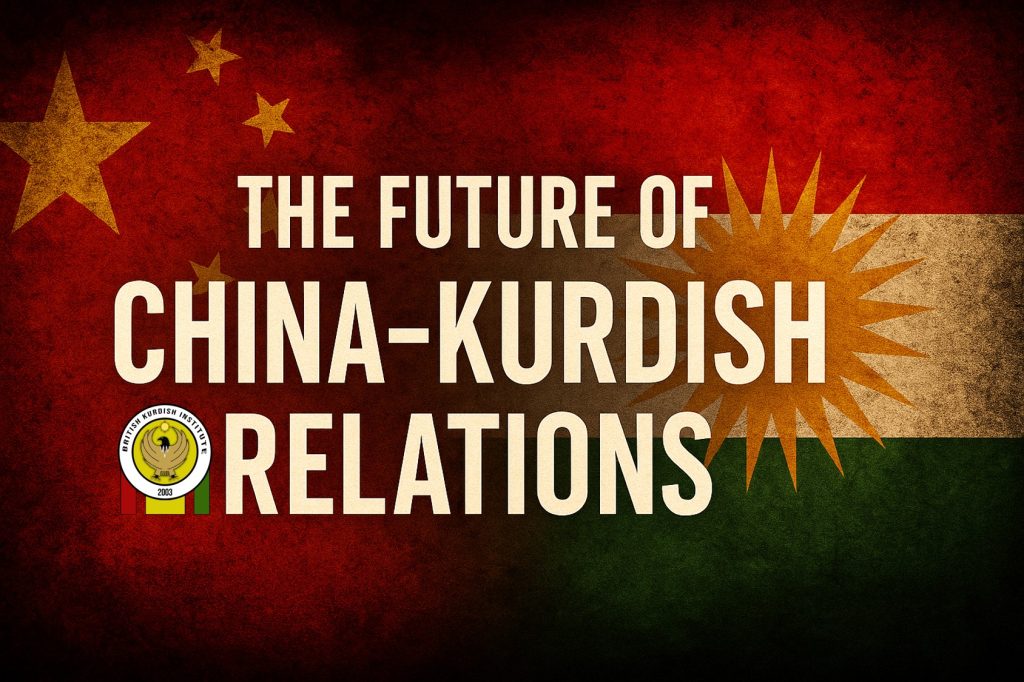The relationship between China and Kurdish groups has long been shaped by complex geopolitical realities. From energy resources to regional stability, multiple factors influence how this partnership may evolve in the future. Understanding these dynamics is essential to grasp the broader implications for the Middle East and China’s global strategy.
Economic Interests: Oil, Trade, and the Belt and Road Initiative
One of the strongest drivers of China-Kurdish relations is economic cooperation. The Kurdistan Region of Iraq (KRI) and parts of Syria are rich in oil, making them attractive to Chinese state-owned enterprises. Through the Belt and Road Initiative (BRI), China aims to expand trade routes across Central Asia into Europe, and Kurdish regions could become strategic nodes along this corridor.
Beyond oil, opportunities also exist in mining, agriculture, and infrastructure development, potentially creating long-term economic partnerships that benefit both sides.
Political Dynamics and Regional Complexities
China’s principle of non-interference makes its relationship with the Kurds particularly delicate. While Kurdish groups often push for autonomy or independence, China must carefully balance its ties with Turkey, Iran, and Iraq—all of which view Kurdish movements with suspicion.
Turkey’s strong opposition to Kurdish independence complicates matters, as Ankara is a key strategic partner for Beijing. This balancing act ensures that China’s engagement with the Kurds remains cautious and highly calculated.
Security Cooperation and Counter-Terrorism
Security concerns also play a role in shaping China-Kurdish ties. With ISIS remnants and extremist threats still present in the region, there are opportunities for intelligence sharing and counter-terrorism collaboration.
In speculative scenarios, China could also become a future supplier of military equipment or technology to Kurdish forces, though this would depend heavily on geopolitical conditions and regional alliances.
Human Rights and Minority Issues
China’s policies toward ethnic minorities, especially in Xinjiang, also affect its approach to Kurdish relations. Beijing may seek to draw parallels between its domestic policies and Kurdish struggles, framing cooperation as a matter of mutual understanding on minority rights and sovereignty.
However, this aspect of the relationship remains sensitive and could either strengthen ties or become a source of tension, depending on international scrutiny.
Geopolitical Alliances and Global Influence
The broader context of global power rivalries further shapes China-Kurdish relations. With the United States reducing its military footprint in Iraq and Syria, China may see new opportunities to expand its influence in Kurdish regions. Similarly, Russian involvement in the Middle East could push Beijing to engage more actively to maintain balance.
At the same time, Western sanctions and political pressure on Kurdish allies could limit Chinese firms’ ability to operate freely, adding another layer of complexity.
Cultural Exchange and Soft Power
Beyond politics and economics, cultural initiatives could serve as bridges between China and the Kurds. Establishing Confucius Institutes, launching educational exchange programs, and hosting joint cultural festivals would enhance mutual understanding and build grassroots goodwill.
Such efforts form part of China’s broader soft power strategy in the Middle East, complementing its economic ambitions.
Infrastructure and Connectivity
China’s investments in transportation networks, energy pipelines, and trade corridors could transform Kurdish regions into vital hubs within the Belt and Road Initiative. Rebuilding war-damaged infrastructure also offers opportunities for cooperation that directly benefits local populations while expanding China’s regional footprint.
Humanitarian and Environmental Cooperation
Future collaboration could also extend to humanitarian aid and environmental sustainability. By supporting reconstruction efforts in Kurdish areas and promoting eco-friendly oil extraction practices, China could strengthen its image as a responsible global actor while securing long-term economic interests.

Conclusion
The future of China-Kurdish relations is multifaceted, shaped by economic ambitions, political sensitivities, and global power rivalries. While oil and infrastructure remain central to cooperation, issues such as regional stability, minority rights, and cultural exchange will play critical roles in defining the relationship.
For China, navigating this complex terrain requires a delicate balance between opportunity and caution. For the Kurds, engaging with Beijing offers a chance to diversify partnerships while reducing dependence on Western powers.
As developments unfold in the Middle East and beyond, this evolving relationship will remain a key element in the region’s geopolitical landscape.









